Kenyans and South Africans view the Internet more positively than other global regions
The Global Internet Report is the first in a series from Internet Society meant to celebrate the progress of the Internet, highlight trends, and illustrate the principles that will continue to sustain the growth of the Internet. The data in the report is very thorough, yet as most is two years old we’ll eschew it in favor of qualitative analysis.
As part of the report, the authors conducted a 20-country survey of 10,500 internet users. Kenya and South Africa represented the Africa region (broad, we know, but it’s better than nothing at all). All were people who have access to the Internet, either at home, at work, or via mobile access. People with no access to the Internet, or who choose never to access the Internet, are excluded from the study. Interviews were conducted online in December 2013 and January 2014 using an email invitation and an online survey.
Kenyans and South Africans view the state of the Internet more positively than those in other regions.
Compared with other regions, Kenyans and South Africans feel very strongly that the Internet is an important tool for accessing knowledge.
Similarly, Kenyans and South Africans feel the Internet can significantly improve the quality of eduction.
Compared with other regions, South Africans and Kenyans have strongly felt the Internet increase political awareness.
Developing regions feel the Internet can help their economies ‘leapfrog’ traditional offerings.
Along the same lines, Africans feel e-commerce can significantly improve their economic situation.
Just as strongly, 80% of Kenyans and Africans surveyed believe the Internet can allow global business to boost their economic situation.
National ICT infrastructure is deemed inadequate to allow the Internet to reach its full potential in Kenya and South Africa.
The majority of people surveyed in all regions feel open access will allow the Internet to reach its full potential.
To prove a point that GDP per capita doesn’t accurately dovetail with mobile broadband usage, the authors showed how Angola’s great income inequality puts broadband out of reach for most of the population. Both Angola and Romania have mobile broadband available at a cost of 7% of GDP per capita. Yet, Romania has 9x higher mobile broadband takeup.






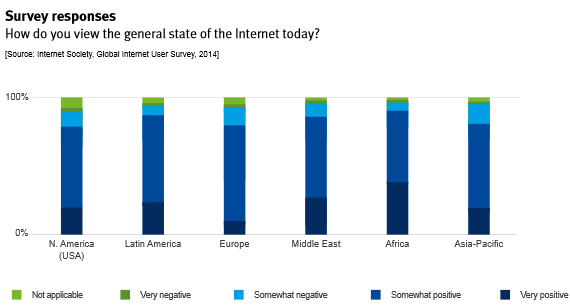
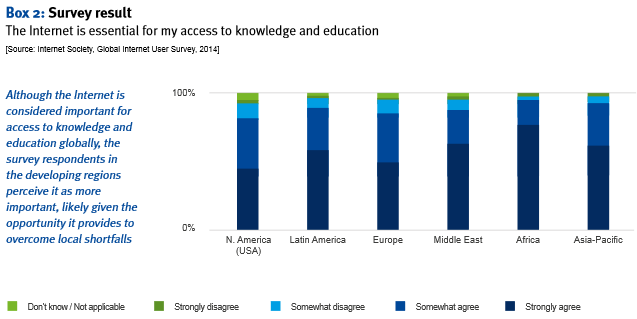
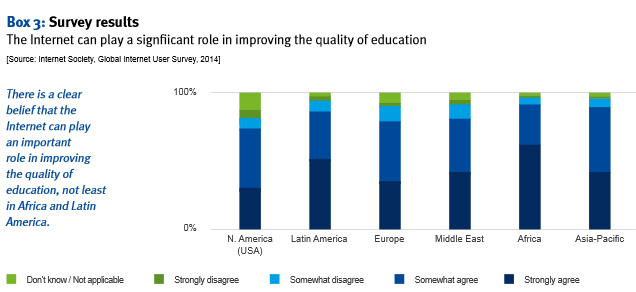
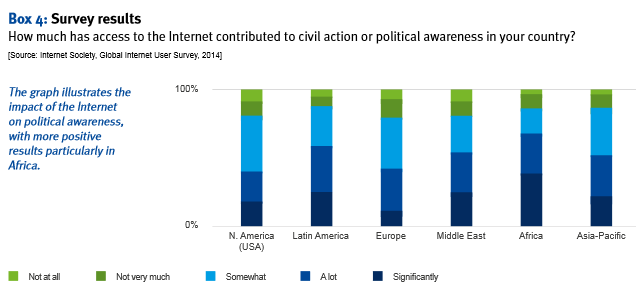
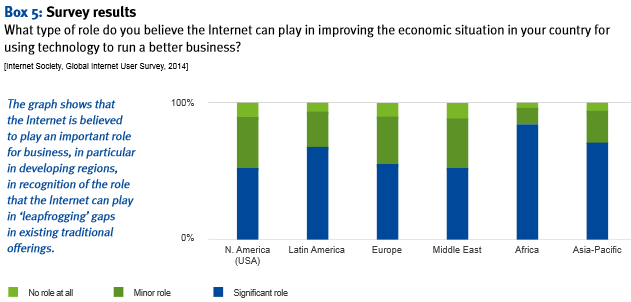
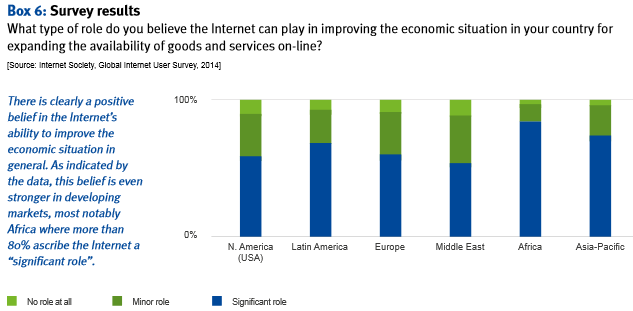
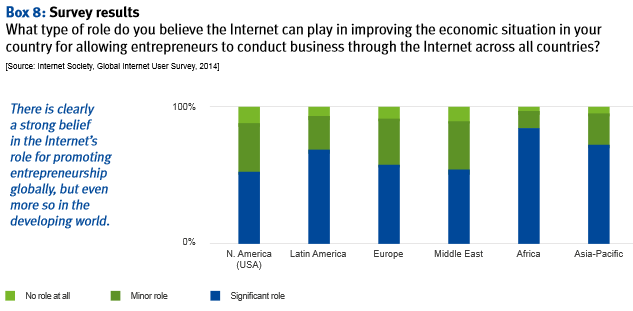
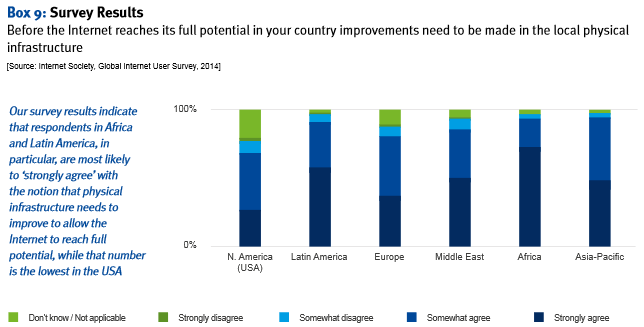
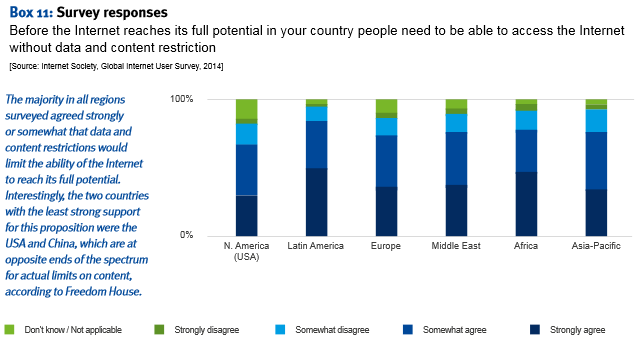
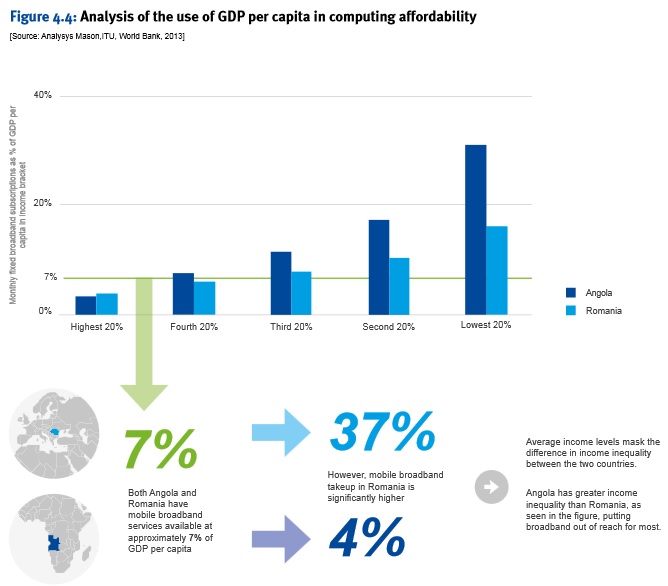






 Twitter
Twitter Facebook
Facebook Pinterest
Pinterest